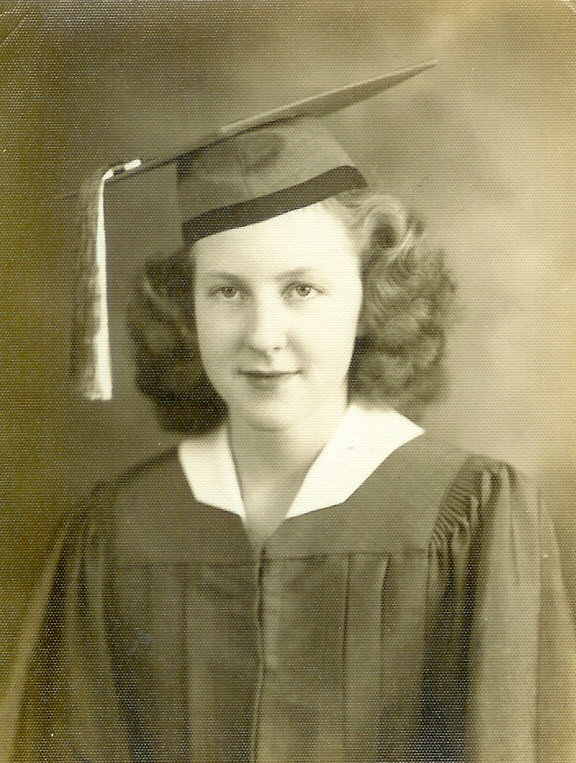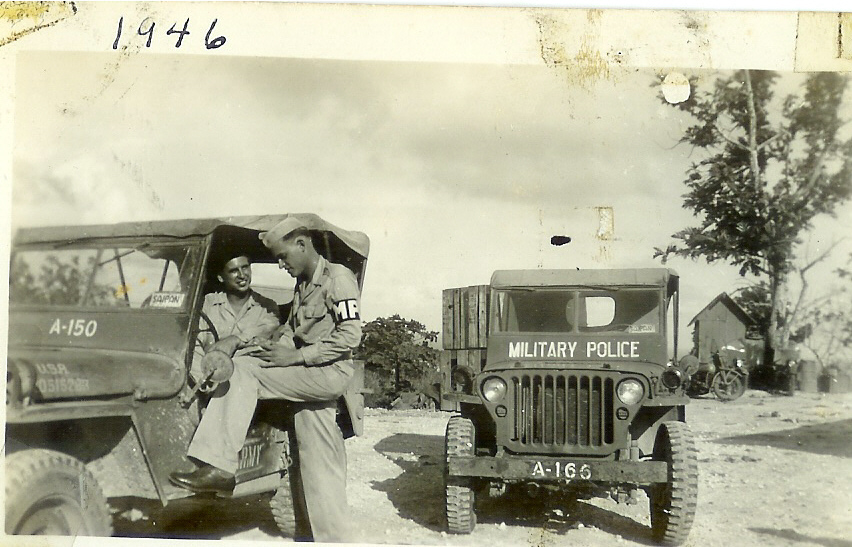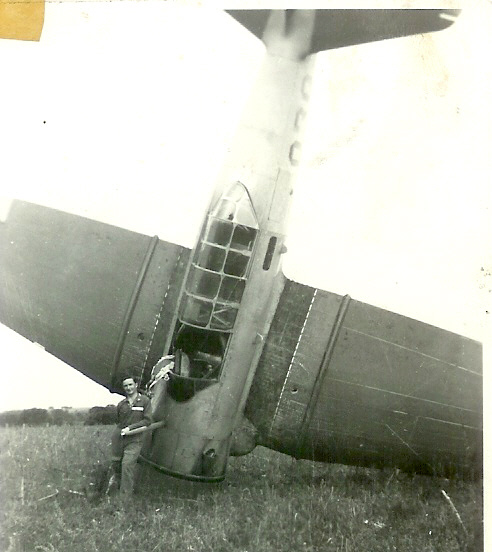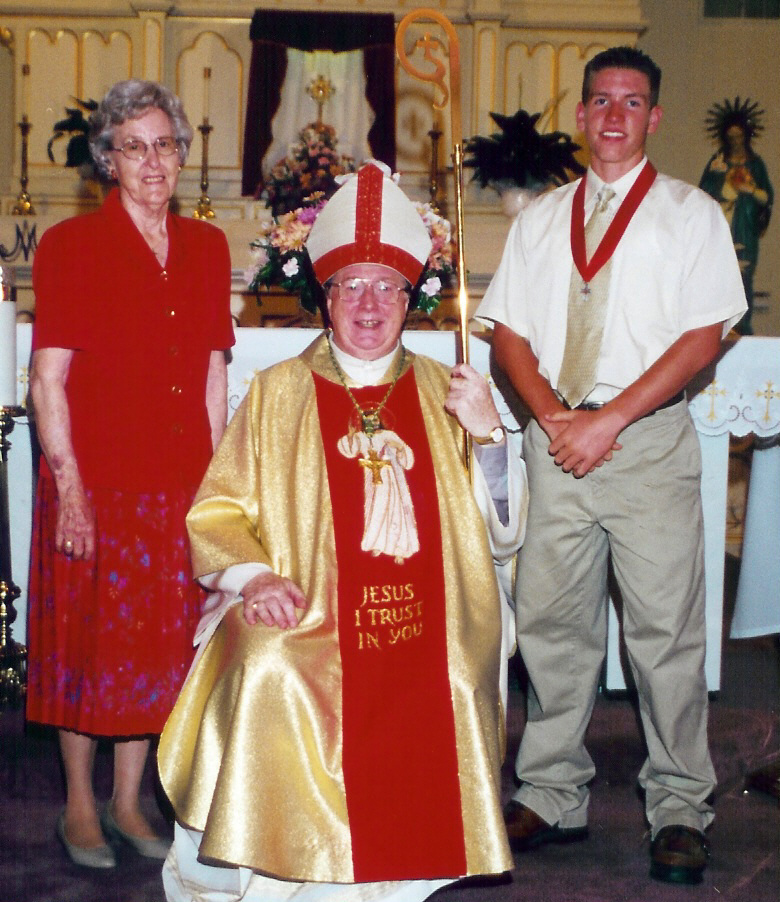Valerie Cecilia Grams (nee Tudyk)


How did you hear about the war?
We heard about the through the radio?
What were you doing when you heard the news about Pearl Harbor being bombed?
We didn't hear about it right away. It was probably a few days later when we were listening to the radio at night. We always listened to the news at night on the radio.
Did you know anyone in the service? I had three close cousins in the service and my brother-in-law. My husband was also in the service, your grandpa, I did know him at the time but we didn't start going together till after the war. Your grandpa's brother was also in the service.
In what ways did your lifestyle change during the war?
Well, mostly the way we shopped because we couldn't buy everything that we wanted. Everything was rationed during the war.
What is everything?
Everything would be; meat, sugar, coffee, shoes, stocking’s, gasoline, and rubber. Some families wouldn't use all their coffee coupons so they would give them to someone else.
You would go every month to get another book of coupons. Even I had one in my own name to get my shoes because you only got two pairs of shoes each year. We always had a large amount of meat because our family was small.
How many people did you know that died or were wounded during the war?
There was one at church that my family knew, but I didn't know him very well. That was the only one that I really "knew" I guess.
Did you grow a victory garden?
No, we always had a garden every year. I had some cousins that lived in the city but I don't think they did. I can't remember, but there were a lot of them going up.
What was a victory garden?
A victory garden is, people that never grew gardens decided to start digging up their back yard and start growing some food because we never knew from one
day to another; ok we may be without this stuff, or we can't buy this or we can't buy that. It was already that sugar, the coffee, and the meat. What else was going to come next? We were
preparing for the worst. We already knew that because we were country kids and momma always canned, and everything was grown and we had everything. When I went to school, each class was told to
bring as much scrap metal, or iron that was laying around the place. The class that brought in the most pounds got a prize. I remember that pile of metal that was out there. Daddy didn't really want to get rid
of some of his stuff but I begged him, and so I would take some of his stuff, whatever was lying around or rusty. Even tin cans, they would take them and make bullets out of them. We also had to save all grease drippings, when you fried
bacon, or any kind of grease was always saved and taken to a place and they used that for ammunition in some way, but I don't know? It burns so they did something with it.
What major impacts did the war have on your life when it began?
When it began I was so young that it didn't make to much of an impact except we would listen to the grown ups talk about who went to the war, where they are,
did you hear from so and so, or did you get a letter from so and so. It really hit me one day when a line of convoy trucks filled with soldiers drove past the outside of our school.
We all got out of class and watched these trucks going taking soldiers down to the coast to be shipped off. The line of trucks was about five miles long.
Every one of those young men were the same age as me and it hit me hard. Then the stars, the church had a flag with a star for each solider and they were blue stars. If there was
one that died it was a gold star.
Did you have to change any of your habits during the war?
A lot of people did, but we really didn't have to. We never went anywhere very much anyway and we stayed at home a lot.
I did go to work then in 1944 and it the war was still going on and it was just always war talk. Everybody talked about the war.
There were the USO (United Service Organizations) things in town. I never got to go to any of those. All the teenage girls would go for dancing for the soldiers.
Everywhere you walked you saw soldiers and sailors and one of them saluting another and what have you. There is a lot of military
here and that's what impressed me in 1944.
How did you keep up with the war?
Mostly the radio and news papers. We never took the paper but we would buy one on Sunday.
Mom would always get the Life magazine. That magazine always had really good photographers that
took good pictures of the war. There were some really scary and bad pictures. The magazine came once a
month. It was hard to hear from the soldiers of over seas. You never knew when you would hear from somebody.
Your grandpa's sister Lotty would write him real often. They had this air mail that was just one page
and you would write on it and then it was an envelope and everything all in one. That’s all you could
write really. All the letters were censored and sometimes you would get a letter from a soldier and it
would have something cut out of it because they weren't supposed to be telling us what was going
on over there. The letters were all censored and every letter was read first before sent to the states for overseas.
Your grand father wrote a letter to home telling them that he was coming home and when he got to Fort Sam
no one was there to meet him so he had to get a ride home with one friends.

What was church like during the war?
Basically it was the same. We always had to have prayers for the soldiers, and that flag
went up with all the stars. They had an American flag up by the altar also. It was very somber I would say.
Nobody was happy.

Did you own a car during the war?
My daddy had a car and my sister was married already at the time and she had a car so I would take turns driving
each of their cars to work.
Was gas rationed from your family?
Gas was rationed so you only went when you had to go, and if you didn't have to go somewhere you just didn't go to save the gas. We went to church every Sunday, and once a week mom and dad had to go into town to sale their butter and cream and whatever else that was off the farm.
But as far as just going somewhere on a trip you didn't do that, you just stayed at home. Even school, there was a bus but I didn't take advantage of it, that little girl picked me up, I didn't know where she got her gas, maybe we gave her some of our coupons. You could kind of give them back and forth. Gas was cheap back then.
How did you keep a steady income?
My mom and dad were farmers, they never really had steady income except when they sold
their butter and eggs and all the farm products. We sometimes didn't make a peanut crop or we didn't
make a corn crop. You never knew what year would be better. When I worked, it was just from 1944
to 1947 and I worked at the bank.
What were the holidays like during the war years?
There was not very many happy people around. They did the best they could.
They were always trying to make packages for going over seas, hoping that they we get
there. There was a lot of packages that didn't make it over seas. There wasn't to much
that you could buy. People had to make due with what they had, and it was sad but yet
we had to celebrate a little bit.
The war lasted four years; did you think it would ever end?
We were really beginning to wonder if it would. It seemed like it was going on forever
and ever. There were so many boys being killed, and we just hoped that someday it would end.
Did you ever think the war would come to America?
Yeah, a lot of people thought that it would. We tried not to think about it, I guess
that thought is always in the back of somebody’s mind. I was quite young though, I just had faith
that maybe they knew what they were doing out there. I just couldn't imagine living in a county
with war. It was sad to look at all those pictures that came back from there.
What were you doing when you found out the war ended? I must have been at work, I’m pretty sure that in San Antonio everybody had just a wonderful feeling and it seems to me that I was at work and we looked at each other and just went "WOW", it really is over. Then you walked out on the street and the newspaper guys were holding up the paper shouting "the war is over"; "the war is over". Everybody had a good happy feeling.
What can I learn from your experience during that time? War is HELL; I guess if I were a man I would even feel different. It's a sacrifice that a lot of guys have to face and now it's even ladies in the war. It's a big sacrifice for a lot of people. We had to do without but at least we didn't have to lay our lives on the line because we were safe hear in America. Everybody can learn from a war, and hopefully it will stay away from our shores here in the United States. I'm beginning to wonder about that.
Did you know any women who went to work for the government?
I never knew anybody personally, but there were a lot of women who went to work.
In a way they were glad to do their part. There were even women who joined the air force.
They had to have a lot of nurses and that was the main thing that the women went for. That must
have been really hard too. They had women doing a lot of desk work who were in the military
and they wore uniforms.

This is a picture of a pilot and his plane who had to crash land in my grandmother's field on May 5, 1941. My great grandmother was out in the field gathering her turkeys, when all of the sudden she heard a loud noise and she ran out of the field. A plane belly landed in the middle of the field and the nose of the aircraft dug into the mud and stood straight up in the air. He was flying this trainer plane out of one of the San Antonio area airforce bases. He had to stay over night at my grandmother's house because the base couldn't come get him and his wrecked plane until the morning.

LaVernia Independent School District. LaVernia Independent school district's homepage, LaVernia Texas. http://www.la-vernia.k12.tx.us/(2004). This site shows you photographs of all the LaVernia schools, grades Pre-K through 12th grade. It also gives you important school information and upcoming events.
"World War II rationing stamp program" Example of Word War II ration coupon.
Utah State University Libraries, 3000 Old Main Hill, Logan. http://library.usu.edu/ -- Last modified on: 11/16/2004.
This site has a huge variety of information on anything you want to know. It is a great site for research papers and projects.
"Victory Garden Add" A World War II Victory Garden Add.
Brown University Scholarly Technology Group, Providence, Rhode Island. http://www.stg.brown.edu/(2004).
This website provides advanced technology consulting to Brown faculty. STG maintains expertise in the critical new technologies that support scholarly work in
the digital medium and help guarantee its longevity, text encoding and metadata standards, database design, and accessibility standards.
"USO, United Service Organizations" Bob Hope's USO shows.
The Library of Congress. http://www.loc.gov/ -- Last updated: December 1, 2004
The mission of the Library of Congress is to make its resources available and useful to the Congress and the American people. Through its Web sites, the Library
offers broad public access to a wide range of information, including historical materials that may contain offensive language or negative stereotypes.